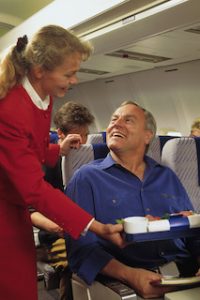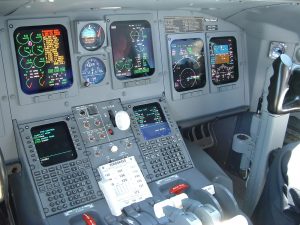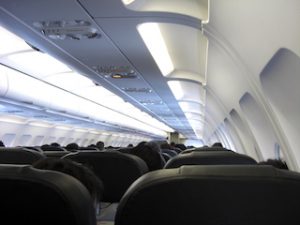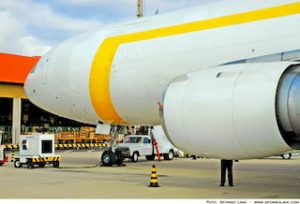Flight Attendant Program Teaches Passenger Service
 In the realm of aviation, flight attendants are the frontline representatives of airlines, playing a crucial role in ensuring passenger safety and satisfaction. To excel in this dynamic environment, aspiring flight attendants must undergo comprehensive training, particularly in passenger service. This article delves into the passenger service training offered in flight attendant programs, outlining its importance, components, and benefits. By understanding the nuances of this training, potential candidates can better prepare for a rewarding career in the aviation industry.
In the realm of aviation, flight attendants are the frontline representatives of airlines, playing a crucial role in ensuring passenger safety and satisfaction. To excel in this dynamic environment, aspiring flight attendants must undergo comprehensive training, particularly in passenger service. This article delves into the passenger service training offered in flight attendant programs, outlining its importance, components, and benefits. By understanding the nuances of this training, potential candidates can better prepare for a rewarding career in the aviation industry.
Flight attendant program
A flight attendant program is a specialized training course designed to equip individuals with the necessary skills and knowledge to succeed as flight attendants. These programs cover a broad spectrum of topics, including safety protocols, emergency procedures, and, most importantly, passenger service training. Given that passenger service is often the most visible aspect of a flight attendant’s role, comprehensive training in this area is essential.
Passenger service training
-
- First impressions matter: The moment passengers step on board an aircraft, their experience is heavily influenced by the demeanour and professionalism of the flight attendants. Proper training ensures that attendants can create a welcoming atmosphere, setting the tone for the entire flight.
- Customer satisfaction: In an industry where competition is fierce, exceptional customer service can differentiate one airline from another. Training in passenger service prepares flight attendants to address passenger needs and preferences effectively, enhancing overall satisfaction.
- Conflict resolution: Air travel can be stressful, and passengers may encounter issues ranging from delayed flights to seating disputes. Flight attendant programs equip trainees with the skills to handle difficult situations with tact and professionalism, minimising potential conflicts and ensuring a smoother experience for all.
- Safety and comfort: While safety is the primary concern, flight attendants also play a vital role in ensuring passenger comfort. Training in passenger service includes understanding how to create a pleasant cabin environment and responding to passenger inquiries or needs promptly.
Components of passenger service training
Flight attendant programs typically encompass various elements of passenger service training. Here are some key components that aspiring flight attendants can expect:
- Communication skills: Effective communication is at the heart of passenger service training. Flight attendants learn how to convey information clearly and courteously, ensuring that passengers are well-informed throughout their journey. This includes announcing safety instructions, providing flight updates, and addressing passenger inquiries. Training often includes role-playing scenarios to practice communication techniques in real-life situations.
- Interpersonal skills: Building rapport with passengers is essential for providing outstanding service. Training programs emphasize the importance of interpersonal skills, teaching flight attendants how to engage with passengers warmly and professionally. This includes active listening, empathy, and cultural sensitivity, which are vital for addressing the diverse needs of airline passengers.
- Problem-solving techniques: Flight attendants must be adept at quickly resolving issues that may arise during a flight. Passenger service training equips them with problem-solving techniques, enabling them to think on their feet and find solutions that satisfy passengers while adhering to airline policies. This training helps cultivate a proactive mindset, allowing flight attendants to anticipate and address potential concerns before they escalate.
- Service standards and procedures: Every airline has specific service standards and procedures that flight attendants must adhere to. Training programs familiarize students with these standards, including meal service, beverage offerings, and in-flight entertainment. Understanding these procedures ensures that flight attendants provide consistent service that aligns with the airline’s brand.
- Crisis management: While the primary focus of passenger service training is on positive interactions, it’s also crucial to prepare flight attendants for unexpected situations. Training includes strategies for managing crises, such as medical emergencies or in-flight disturbances. Flight attendants learn how to remain calm and composed under pressure, ensuring that passenger safety and comfort remain priorities.
- Cultural awareness: In today’s globalised world, flight attendants interact with passengers from various cultural backgrounds. Training programs emphasize the importance of cultural awareness, teaching attendants how to respect and understand different customs and practices. This knowledge enhances the overall passenger experience, making every traveler feel valued and respected.
Benefits of comprehensive passenger service training
Attending a flight attendant program with a strong focus on passenger service offers numerous benefits for aspiring flight attendants. Here are some key advantages:
- Enhanced career opportunities: Graduates of flight attendant programs with comprehensive passenger service training are often more competitive candidates in the job market. Airlines look for individuals who possess strong customer service skills and can represent the brand effectively. Completing a robust training program can enhance your employability and open doors to a wider range of job opportunities.
- Improved job performance: Well-trained flight attendants tend to perform better on the job, resulting in increased job satisfaction and career longevity. Comprehensive passenger service training equips individuals with the skills necessary to handle a variety of situations effectively, leading to improved performance and confidence.
- Positive passenger experiences: Ultimately, the goal of passenger service training is to create positive experiences for travellers. Flight attendants who are well-trained in service techniques can foster a welcoming environment, leading to satisfied passengers and positive reviews for the airline. This not only benefits the airline’s reputation but also contributes to the overall enjoyment of air travel.
- Personal development: Participating in a flight attendant program enhances personal development beyond professional skills. Individuals learn to navigate challenging situations, develop empathy, and improve communication skills—all of which are valuable in both personal and professional contexts.
- Networking opportunities: Flight attendant programs often provide networking opportunities with industry professionals and fellow trainees. Building connections within the aviation industry can be invaluable for future job placements and career advancements.
Preparing for a flight attendant program
If you are considering enrolling in a flight attendant program, here are some tips to prepare for success:
- Research programs thoroughly: Take the time to research various flight attendant programs to find one that aligns with your career goals. Look for programs that emphasise passenger service training and have a strong reputation within the industry.
- Develop relevant skills: Before enrolling, consider developing skills that are essential for flight attendants. This can include improving your communication skills, working on conflict resolution, and gaining experience in customer service roles.
- Stay informed about the aviation industry: Being knowledgeable about the aviation industry can give you a competitive edge during your training and job search. Stay updated on industry trends, airline news, and customer service practices to better prepare yourself.
- Prepare for interviews: Many flight attendant programs require an interview as part of the application process. Prepare by practicing common interview questions and showcasing your passion for customer service and aviation.
- Embrace lifelong learning: The aviation industry is continually evolving, and so are the skills required to succeed as a flight attendant. Embrace the idea of lifelong learning, and be open to further training and development opportunities throughout your career.
In summary
Passenger service training is a vital component of flight attendant programs, equipping aspiring attendants with the skills and knowledge necessary to provide exceptional service in a dynamic environment. With an emphasis on communication, problem-solving, cultural awareness, and crisis management, this training prepares individuals for the challenges of the aviation industry.
By understanding the importance of passenger service training and choosing a reputable flight attendant program, you can embark on a rewarding career that not only fulfills your aspirations but also allows you to make a positive impact on travelers’ experiences. The role of a flight attendant is not just about serving meals and drinks; it’s about creating memorable journeys for passengers around the world. Embrace the opportunity to develop your skills, connect with diverse individuals, and thrive in an ever-evolving industry. With the right training and dedication, you can soar to new heights in your aviation career.










